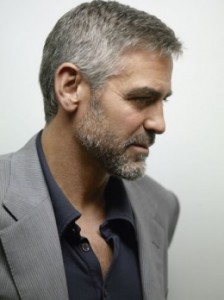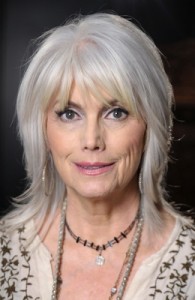We live in a nation that has a terrible phobia of aging. Our youth-centered values saturate the media on everything from cars to clothing and entertainment. Since the 1920’s, “the age of gin and flappers,” we have increasingly shunned the idea of growing old, even if gracefully, and the result is that youth and their aged counterparts have become more separated than ever before.

In centuries before the 20th, young people mingled more with their elders, because often grandparents ended up living with their children, so that the household was a blend of generations. Also, travel was quite a different challenge in that riding a horse or taking a carriage was not usually a spur of the moment decision. Entertainment was at home, whenever there was leisure time. Music, games, and conversation were much more multi-generational, out of necessity. Nowadays, teenagers seem desperate to escape their homes to be anywhere but with their older family members. Though there has always been the phenomenon of youth seeking its own identity through distancing itself from elders during teen years, that separation was not as pronounced until the 20th Century. It has now become almost a chasm.

Perhaps behind our terror of growing “old” is a fear of death itself, which in our time seems to many more of a finality than in previous centuries, when an afterlife was more of a reality in general belief than in modern times. Today our association with all things “chic” are connected in some way with the beauty, energy, and health of being young. Too few images of contented elders are shown in the media. We tend to see being aged as the end of a journey instead of a journey in itself, one that can provide time, not just for rest, but for further exploration on one’s own terms and at one’s own pace.
I resent ads that speak of getting rid of gray hair as though it’s some kind of cancer that will prevent participation in the modern world and any kind of happiness or respect by others. People with gray hair are not lepers. This morning I read about studies being done in England and Germany toward a “cure” for gray hair. Cure? Growing old is not a disease, but the article suggested that it was, and that not having gray hair would bring back a flaming youth and happiness that would otherwise not be possible. What rubbish! Sexiness is wonderful in its place, but so are things like experience, character, and wisdom, all of which gray hair can represent. And who says that someone with silver hair can’t be sexy anyway?
Almost all the people I know personally, who have gray or white hair are comfortable, stable friends, who have taken care of themselves and are enjoying their golden years. I include myself among those who are enjoying their “declining” years, still in excellent health, and with goals and projects that keep their creativity and joy of being alive realities. My hair is silver and on its way to being snow white eventually. That fact will never keep me up nights worrying that something has been lost. In fact, I know that much has been gained. JB



Thank you, John, for this insightful piece about aging and gray hair. I agree with you. It’s strange that in our culture, acceptance of one’s Gray hair is being treated more like an aberration – almost like a cancer, as you said. Those who are slaves to dye are being considered the norm, while those “true to themselves” (authentic) as being the weird ones. We live in a world obsessed with fighting what comes naturally and can’t be avoided, ie., aging process, wrinkles, and Gray hair. No wonder many people don’t know know anymore what graceful aging looks like – because too many uphold the practice “Dye till you die” – literally.
Thank you, Felice, for your comment. JB